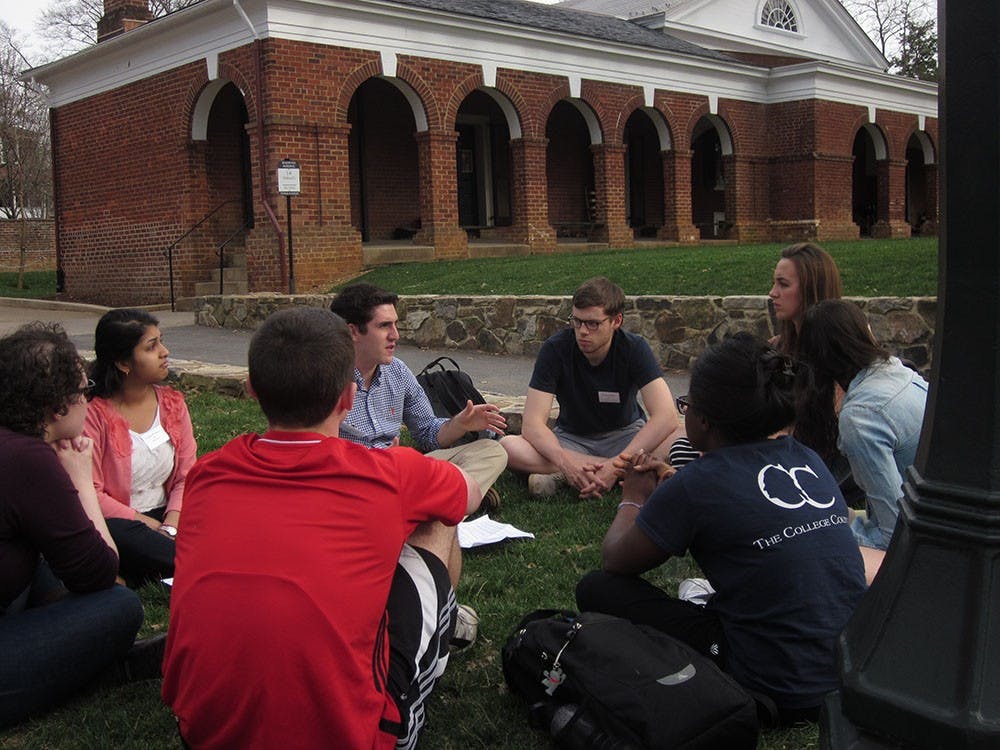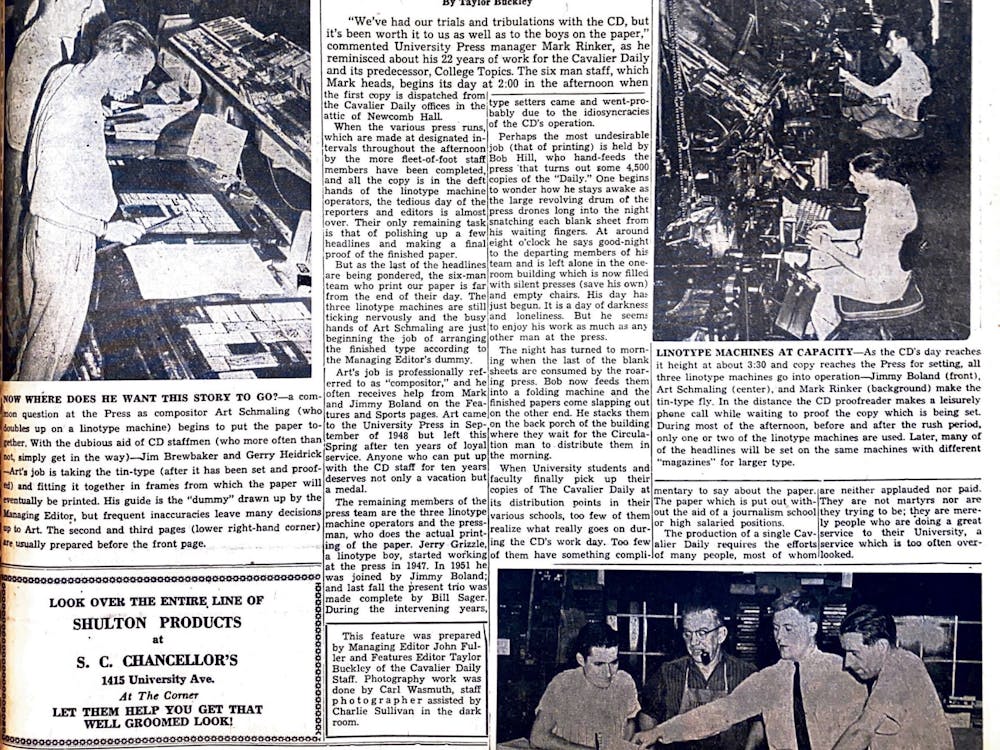The Honor Committee’s Honor Congress drew more than 160 attendees to the Albert and Shirley Small Special Collections Library Thursday evening. Outgoing Honor Chair Evan Behrle said the turnout speaks to the enduring importance of the Honor system to the University community.
“This past year for me has been in part confronting skepticism that honor is, in the end, nothing more than a fool’s errand … that honor is a relic,” said Behrle, a fourth-year College student. The attendance, surpassing the Committee’s expectations, suggested otherwise. “[If that attendance] is not proof enough that honor is not dead, I don’t know what is.”
Forty of the 160 people in attendance were members of the Honor Committee. There were also two or three faculty members in attendance, Behrle said.
Attendees divided into 18 groups to enable participants’ group discussions.
Each group discussed one of five issues with the Honor system: faculty disillusionment and student ambivalence toward the system, disproportionality in reporting, inconsistency in verdicts rendered by juries, the low reporting rate particularly among the student body, and honor outreach and education. Members of the Honor Committee moderated each small group discussion.
Behrle said he thought the event witnessed many “productive and diverse conversations.” Yet challenges remained when mediators tried to bridge polarized opinions about the Committee’s policies.
“As a facilitator, it can be difficult to moderate a discussion about Honor,” said second-year College student Ali Hazel, an Honor support officer. “From my experience, participants are often very bogged down by Honor’s irrefutable structural problems, and conversations become rather unproductive.”
Incoming Batten representative Liz Minneman, a third-year College student, said the system’s structural problems necessitate change.
“[Honor] has so many problems,” Minneman said. “It can’t continue as it is now. It’s not sustainable.”
Third-year College student Nick Lee, incoming vice chair for trials, spoke to the Committee’s single sanction policy, a perennially contentious issue among students when discussing honor.
“[The policy is] controversial,” Lee said. “What makes it so difficult is it’s so fundamentally important to the system.”
Overall, he said, the event may not have changed students’ minds, but it allowed “both sides to know where the other is coming from.”
Behrle said the biggest problem in Honor continues to be community disengagement. Student ambivalence and faculty disillusionment toward the Honor System threaten to undermine the system’s structure, he said.
“This is a system that exists such that students can hold other students accountable to student standards,” Behrle said. “If we do not actually hold each other to those standards … then the system just can’t possibly be fulfilling its purpose.”
Any constitutional change to the Honor system, such as eliminating single sanction or moving away from randomly-selected student juries, requires a 60 percent vote of the student body.
“The change … can’t come from us,” Behrle said.
The Congress did not promise concrete results, but rather, suggests a way forward, Behrle said.
“Today was about ideas, and some of them are going to be general … but they will help the new committee set a broad agenda,” he said.
Chair-elect Nick Hine, a third-year College student, said the Congress would serve as a springboard forward for the incoming executive board, providing insight into what the community views as key issues for Honor.
“Tonight has energized me,” Hine said. “It’s definitely something that we are going to strongly consider doing next year.”





